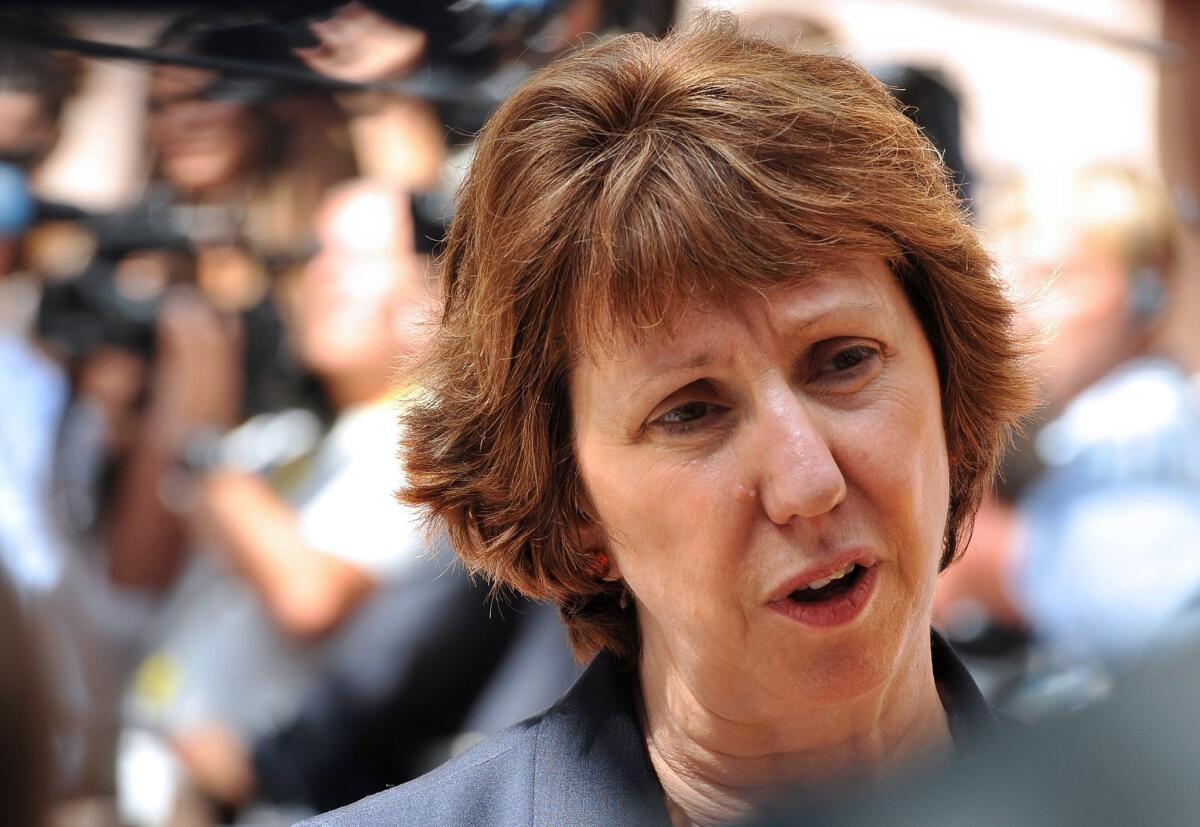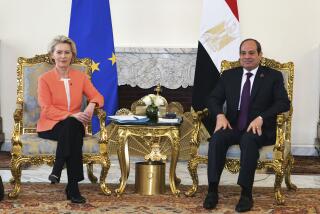Europe suspends export of arms, other equipment to Egypt

LONDON -- European nations agreed Wednesday to suspend the export of any equipment to Egypt that its security forces could use to suppress opposition to the military-backed government, but they will continue to provide economic aid to the turmoil-ridden Arab nation.
“We do believe that the recent operations of the security forces have been disproportionate,” said Cathy Ashton, the top diplomat of the European Union.
But she called Egypt “a crucial partner” whose people deserved continued economic assistance, especially the “most vulnerable” residents and those trying to build civil society.
Ashton also condemned attacks on churches and on police in the Sinai Peninsula, and urged restoration of “a national dialogue that can be open to all” who eschew violence and embrace democratic principles.
At an emergency meeting in Brussels, foreign ministers from the EU’s 28 member countries struggled to come up with a response to recent events in Egypt that would reflect their concern over the killing of hundreds of supporters of ousted Islamist president Mohamed Morsi but maintain the EU’s role as a potential mediator in the conflict.
The collective decision to suspend licenses for the export of arms and other security-related items follows moves already taken by some individual European nations, such as Britain, to do so. But the impact is likely to be small, as the amount of such equipment shipped to Egypt from Europe is dwarfed by the United States’ annual $1.3 billion in military assistance to Cairo.
Europe has, however, provided hundreds of millions of dollars in economic aid over the past several years. Trade between the EU and Egypt was worth $32 billion in 2012, far more than that between Egypt and the U.S.
European funds earmarked for helping develop civil society and other initiatives, such as attempts to empower women in rural areas, will continue to be disbursed.
“We don’t want to hurt the people of Egypt in actions that we take,” British Foreign Secretary William Hague said.
Scaling back such aid would have been offset by pledges of $12 billion in support of Egypt’s government by wealthy Arab states, such as Saudi Arabia and Kuwait.
The EU has tried to position itself as a credible mediator in the conflict, without the taint in some Egyptians’ eyes of the U.S.’ close historical alliance with the Egyptian military. Ashton was the first Western diplomat allowed to meet with Morsi after his detention by the military last month.
ALSO:
Syria rebels say scores dead in poison-gas attack
Egyptian court orders Mubarak’s release from prison
Ex-Pope Benedict on why he resigned: ‘God told me to’
More to Read
Sign up for Essential California
The most important California stories and recommendations in your inbox every morning.
You may occasionally receive promotional content from the Los Angeles Times.











